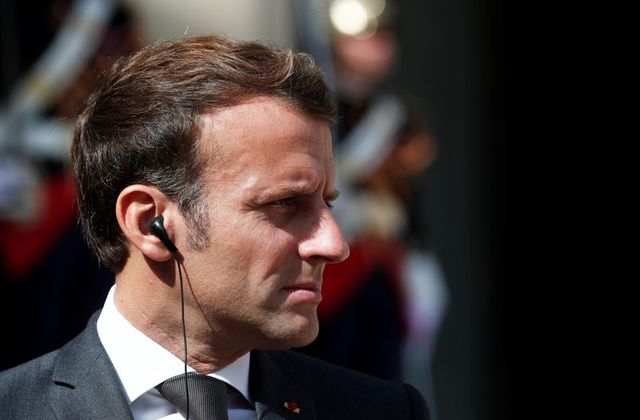French President Emmanuel Macron will make a prime-time television address Wednesday, under pressure to stem soaring Covid-19 cases and respond to criticism that he has allowed the pandemic to run out of control.
At the end of January, the 43-year-old president bucked the European trend and went against the recommendation of his scientific advisers by deciding that France would not enter a third lockdown.
For a month, the bet looked to have paid off as new cases flatlined at around 20,000 a day in February, with France in a state of semi-openness — under a night-time curfew, but with shops and schools open.
He will address the nation at 8:00 pm (1800 GMT) following a weekly meeting of top cabinet ministers, with several options reportedly under consideration including the much-resisted national lockdown.
Other more likely choices include a further tightening of measures in the worst-hit areas, including the closure of schools, and a widening of restrictions to cover more parts of France.
Up until now, Macron’s government has trumpeted a “third way” to manage the crisis, which has sought to contain the spread of the virus without issuing stay-at-home orders that have significant mental health and economic repercussions.
The spread of the more contagious “British variant”, as well as a sluggish vaccine campaign, have left this strategy under fire from political opponents and many epidemiologists.
Exhausted medics in Paris have taken to the airwaves to condemn Macron in recent days and warn they will soon have to start “triage” — selecting patients for intensive care based on their survival chances.
“Since January, we have had political decision with no scientific coherence,” Gilles Pialoux, head of infectious diseases at the saturated Tenon hospital in Paris, told France Inter radio on Tuesday.
“We’ve lost so much time that the measures now will be harder and last for longer.”
On Tuesday health authorities reported an additional 569 intensive care cases in the past 24 hours, the highest number since April 2020, when the first wave of coronavirus cases hit.
– ‘No mea culpa’ –
The last tightening of restrictions entered into force in France on March 20, covering around a third of the country’s population including the Paris region.
Non-essential shops were closed and travel restrictions imposed, but small groups were allowed to meet outside and schools remain open.
Macron has defended himself from attacks from opponents including far-right leader Marine Le Pen, who is rising in opinion polls.
“I have no mea culpa to issue, no regrets and no sense of a failure,” he told a press conference on March 25.
He has insisted that every day out of lockdown has been a day gained and points to neighbouring Germany, which is struggling to emerge from months of lockdown restrictions, also because of the spread of the British variant.
– Still favourite –
At stake in France’s current crisis is above all the health of nearly 70 million people and the fate of the eurozone’s second-biggest economy, but also Macron’s political future one year from presidential elections.
As well as the spiralling infections, he is also on the back foot over France’s vaccination campaign, which has been dogged by a chronic shortage of doses due in part to a centralised EU purchasing system which he championed.
His handling of the twin health and economic crises caused by the pandemic will be foremost in voters’ minds next April and May, analysts say.
Stephane Zumsteeg, head of public opinion surveys at the Ipsos pollster in France, said Macron’s decision not to lock down in January was a “a daring gamble, but not one that is totally lost”.
“It was a half-way house with a curfew, and people appreciated it on balance,” he said.
He said voters would ultimately judge Macron’s performance based on a comparison of France with its EU neighbours.
“Of course lots of things can happen in the next year but at this point the main favourite for next year’s election is Emmanuel Macron, not because he’s the best or the most loved but because there’s no credible alternative other than Marine Le Pen.”



Comments are closed.